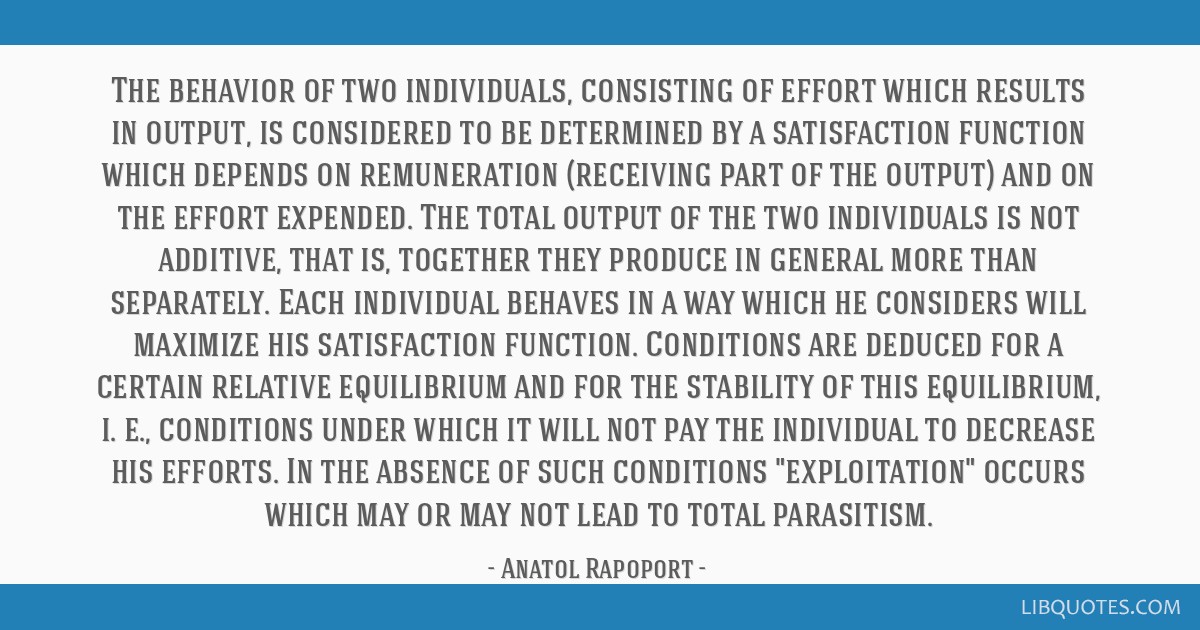The behavior of two individuals, consisting of effort which results in output, is considered to be determined by a satisfaction function which depends on remuneration (receiving part of the output) and on the effort expended. The total output of the two individuals is not additive, that is, together they produce in general more than separately. Each individual behaves in a way which he considers will maximize his satisfaction function. Conditions are deduced for a certain relative equilibrium and for the stability of this equilibrium, i. e., conditions under which it will not pay the individual to decrease his efforts. In the absence of such conditions "exploitation" occurs which may or may not lead to total parasitism.
Anatol Rapoport. "Mathematical theory of motivation interactions of two individuals," The Bulletin of Mathematical Biophysics (1947) 9: 17-28, March 01, 1947





















